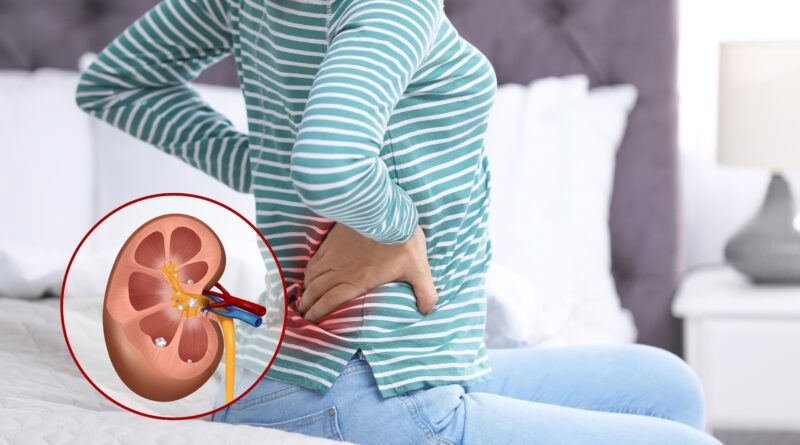Kidney Stones: Types, Causes, Homoeopathic Management
Kidney stones are produced when crystals accumulate in your urinary tract due to the presence of minerals and other substances. Most of the stones leave your body via urine, but some can cause terrible pain. If the stone grows too large to pass through naturally or becomes an impediment, you may need a procedure to break it up or remove it.
The kidneys are paired organs that resemble beans. Each kidney is approximately the same size as a fist. The kidneys create urine by filtering excess water and waste from the circulation. When you have renal disease, your kidneys fail to filter blood effectively.
What are Kidney Stones Made of?
There is a wide variety of colors and forms of kidney stones. The sort of stone you have will determine the best treatment for it and prevent additional stones from progressing.
Calcium stones (80 percent of stones)
Most kidney stones are calcium stones. Calcium stones occur in two forms: calcium oxalate and calcium phosphate. The most common kind of calcium stone is calcium oxalate. Calcium stones are more likely in those whose urine has too much calcium. Calcium stones in urine can form for a variety of causes, even if the calcium concentration is normal.
Uric acid stones (5-10 percent of stones)
Uric acid is an excrement that results from metabolic processes in the body. Uric acid granules fail to dissolve efficiently in urine that is acidic, resulting in a uric acid calculus.Having acidic urine may come from:
- Being overweight
- Chronic diarrhea
- Type 2 diabetes (high blood sugar)
- Gout
- A diet rich in meat and poultry and lacking in veggie and fruit intake.
Struvite/infection stones (10 percent of stones)
It is unusual to find struvite stones. UTIs, or persistent urinary tract infections, are linked to these stones. Urine can become more basic or alkaline and less acidic due to certain microorganisms. Urinary alkaline pH leads to the production of magnesium ammonium phosphate (struvite) calculi. These stones frequently proliferate, have huge branches, and are huge.
The biggest risk group for these stones is individuals who experience recurrent urinary tract infections (UTIs), such as those with permanent kidney or bladder tubes, or who have neurologic problems (paralysis, multiple sclerosis, spina bifida) that impair bladder emptying.
Cystine stones (< 1 percent of stones)
One of the amino acids that makes up protein is cysteine, which may be found in several meals. Cystinuria is a rare genetic metabolic illness characterized by an excess of cystine in the urine. It happens when the amino acid cystine in urine is not absorbed by the kidneys. Urine that has high quantities of cystine may result in sedimentation. Cystine stones typically occur during infancy.
Symptoms
The common symptoms associated with renal stones are:
- Sharp Pain in flanks
- Abdominal pain
- Burning pain while urinating
- Increased frequency of micturition
- Cloudy urine
Homeopathic medicines for Renal Stones
- BJain Omeo K-Stone Syrup: It helps in relieving kidney stones and their recurrence. It also helps relieve the associated symptoms such as burning in urine, frequent urging, abdominal pain, and blood in urine.
- Berberis vulgaris: The best treatment for renal colic, particularly when left-sided pain radiates from the kidney to the urethra and causes an impulse to pee. It also relieves right-side discomfort with corresponding symptoms.
- Ocimum Sanctum: Red urine with white deposits or brick dust; excruciating, twisting agony that causes the sufferer to scream and moan. Bloody, scarlet, and murky pee.
- Lycopodium: After the initial pain has subsided in chronic instances, there is abdominal flatulence, particularly on the right side, and red sand in the urine.
- Sarsaparilla: For white deposits. Urine shortly after passing turns murky, like clay water. severe discomfort after urinating. There is little, crusty, slimy urine. Bladder tenesmus.
- Terebinthinae: Severe discomfort in the kidney area that draws blood. Intense burning.
Conclusion:
Kidney stones are very common these days and their recurrence makes them very difficult to deal with. Their symptoms may include burning, constant urging to pass urine, blood in urine, and sharp pain in the abdomen. Homeopathic medicines online can offer a holistic approach to relieve the complaints along with a reduction in the recurrence of calculus formation.

